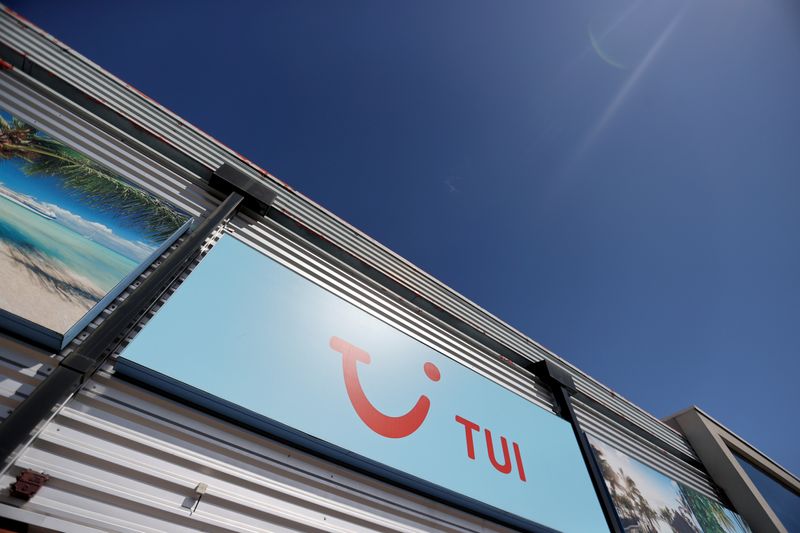BERLIN/FRANKFURT (Reuters) – TUI <TUIGn.DE><TUIT.L> is in talks with the German government on an extra 1.5-1.8 billion euros ($1.8-$2.1 billion) in state aid as two bailouts from earlier this year have not been enough for travel company to cope with the coronavirus travel slump, people close to the matter said.
The money could come from Germany’s new economic stabilisation fund WSF and could include a mixture of equity and hybrid capital, the people said. They also said various options were still under discussion and no decisions had been taken.
Another person said that 1 billion to 2 billion euros in additional aid were under discussion.
TUI has already received a total of 3 billion euros of state-backed loans in two tranches this year. The current talks are focusing on strengthening the company’s capitalisation, the sources said.
TUI said that after the renewed travel restrictions it was considering all options for its finances for the next few months, declining to comment on a possible third bailout.
The German government declined to comment.
TUI’s largest shareholder, Russian billionaire Alexey Mordashov, who owns 25% of the London-listed company, had no immediate comment. Sources familiar with the situation have previously said he is expected to participate pro rata in a potential capital increase.
TUI has said it could issue new shares but clarified last month that it wanted to wait for its share price to recover before any capital increase. It also said asset sales were also an option to generate cash.
The company, which last year took 23 million people on holiday, lost 1.1 billion euros in the quarter through June after COVID-19 halted travel, wiping out revenue and straining its balance sheet as it burned through about 550 million to 650 million euros a month.
TUI’s share price extended Monday’s gains and was 4.4% higher by 1528 GMT as investors hoped that the arrival of a COVID-19 vaccine will help its business to recover.
“Monday’s share price reaction shows that people believe in TUI’s business model, which has been disrupted but not destroyed by government shutdowns,” one of the people said.
The share price rise also means that in any state aid deal, TUI may be able to sell new shares to the government at the nominal value of 2.56 euros and may be able to avoid a prior reduction of the company’s capital. The lowest possible price for any capital increase is the face value of the shares.
The government is seeking to buy new shares in TUI at a large discount as that would potentially allow an exit without losses at a later point in time, the people said.
A potential equity investment by the government would also help to safeguard an additional injection of non-voting capital dubbed silent participation by the government, they added.
In Lufthansa’s 9 billion euro bailout earlier this year, the government bought new shares worth up to 25%, injected non-voting capital and granted loans through state bank KfW.
TUI is expected to report financial results for its full fiscal year next month.
(Editing by Maria Sheahan and Jane Merriman)
























